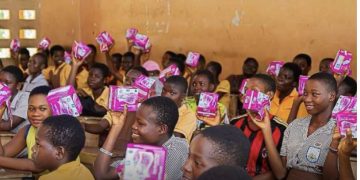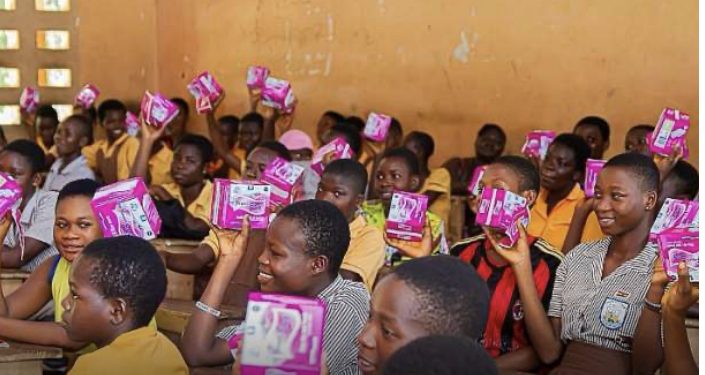Ghana has proposed to spend GH¢292.4 million on a new initiative aimed at improving menstrual hygiene and school attendance among female students in primary school up to secondary level.
Under the initiative implemented by President John Mahama, young girls in Primary 5 through to Junior High School (JHS) and Senior High School (SHS) will receive free sanitary pads.
During the presentation of the 2025 Budget in Parliament on Tuesday, March 11,2025, Finance Minister Dr. Cassiel Ato Forson announced that government has allocated GH¢292.4 million to commence the distribution of free sanitary pads from primary to secondary schools.
Dr Forson explained that the distribution of free sanitary pads demonstrates government’s commitment toward supporting girl child education in the country.
The flag of Ghana will fly higher internationally should the initiative be fully operational this March and sustained as well as.
As of now, only a handful of countries are providing free sanitary pads to girls and women, and they include Scotland, New Zealand, Kenya, Botswana, Uganda and Zambia.
The rest are Canada (British Columbia, Ontario), Australia (New South Wales, Victoria) and US (Illinois, Washington, New York).
Consistently, the World Bank has worked with its partners across the world to improve menstrual hygiene.
The World Bank acknowledges that ‘Good menstrual hygiene management plays a fundamental role in enabling women, girls, and other menstruators to reach their full potential’.
In addition, ‘Inadequate sanitary facilities affect girls’ experiences at school, causing them to miss classes during their menstruation or even drop out’.
In Kenya, for example, a study found that 95% of menstruating girls missed one to three school days, 70% reported a negative impact on their grades, and more than 50% stated falling behind in school because of menstruation (Mucherah and Thomas 2017).
In a related research which examined sanitary pad intervention in Ghana, it was found that after six months of free sanitary pad provision and puberty education programming, girls missed significantly less school (Montgomery et al. 2012).
More news in the video below.
Disclaimer: Article was put together by the author but with extra reference materials from the World Bank website. Photo: Modern Ghana
SOURCE: Kasatintin.com
















